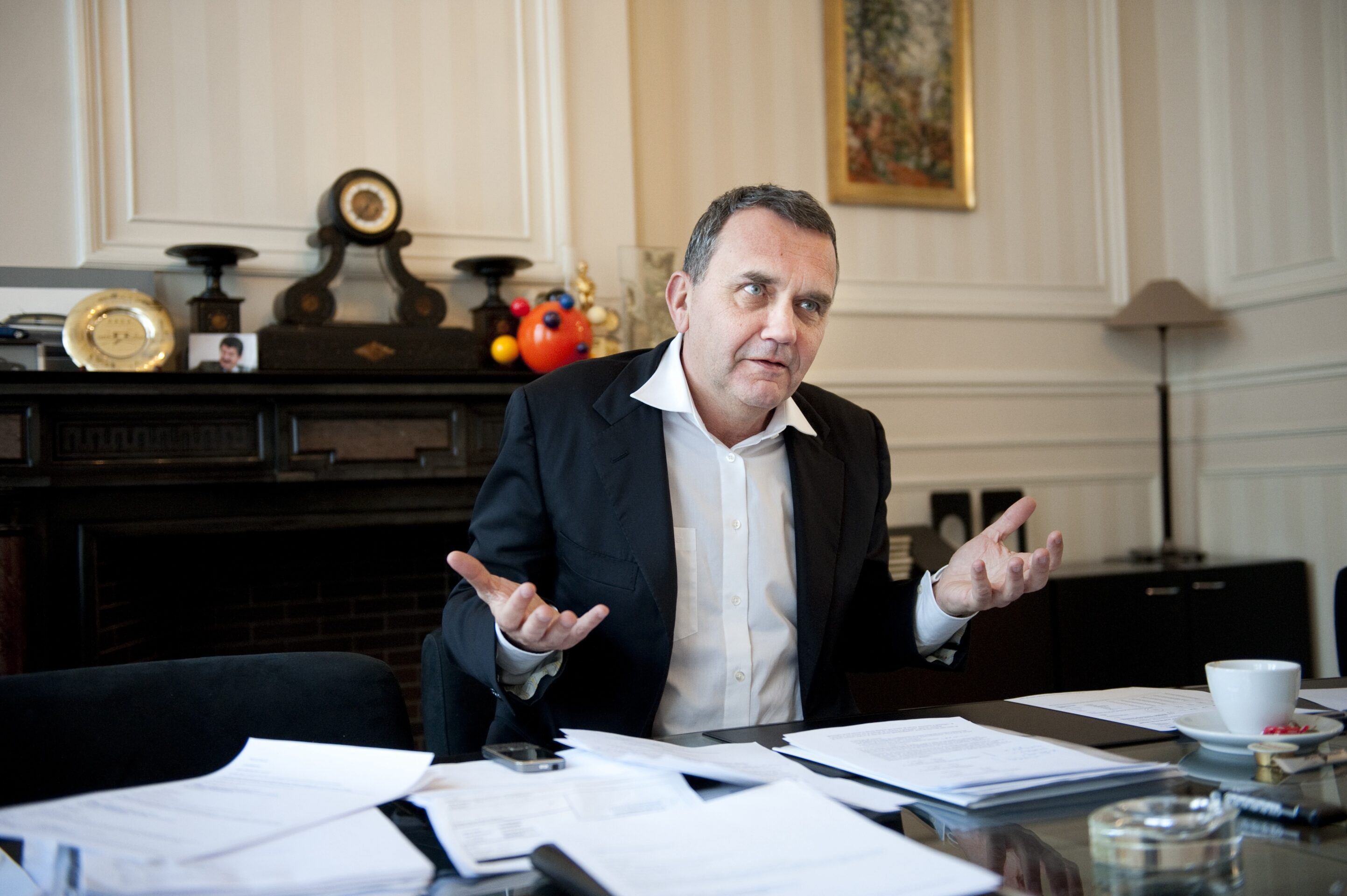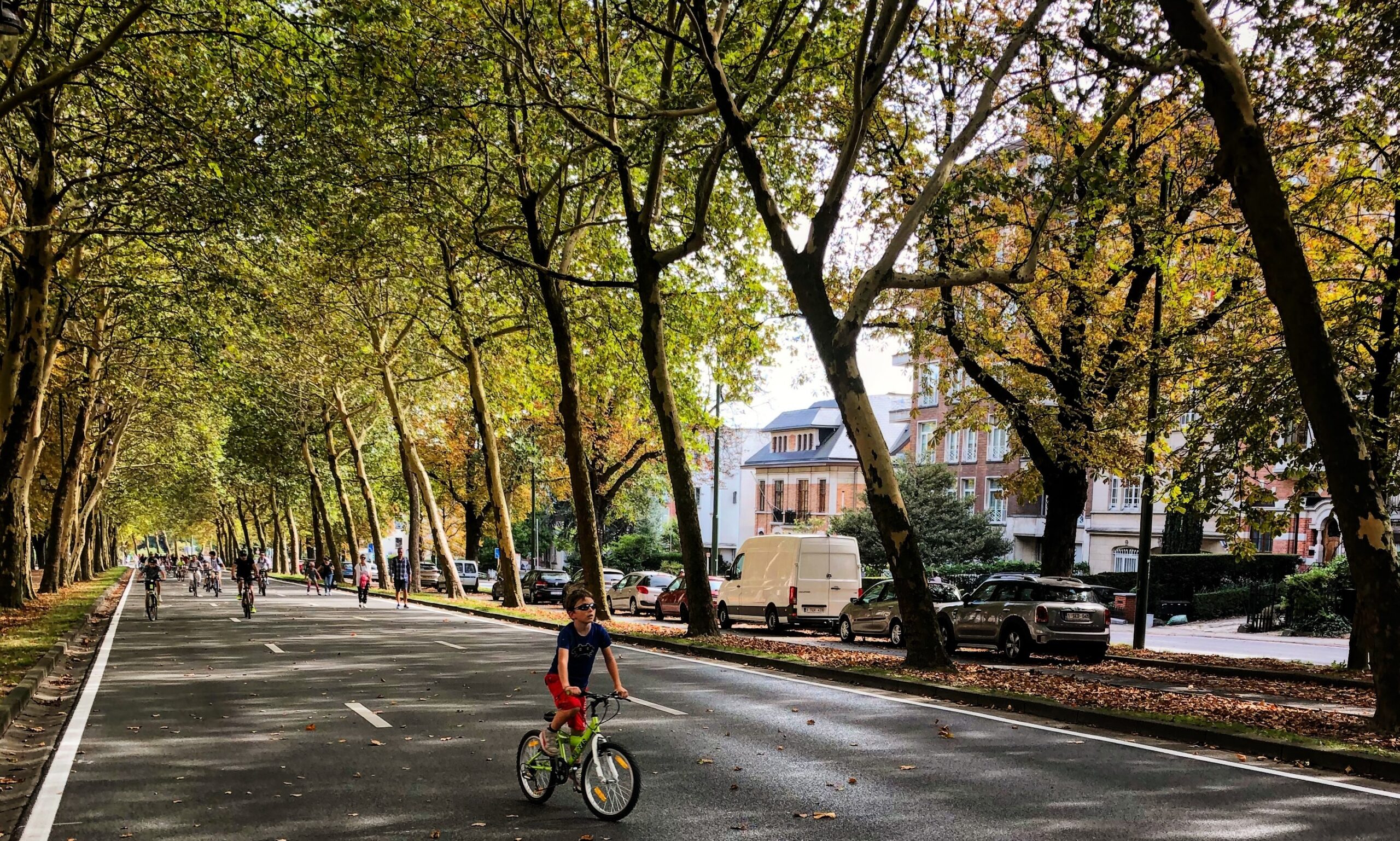While some school children dream of being astronauts or rockstars, by the wise old age of six Benoît Cerexhe knew he wanted to be a mayor.
"My grandfather was mayor on the other side of Belgium, in the Eastern Cantons in Malmédy. When I used to go for walks with him, I always said that I wanted to do that with my life," he says.
Now 63, Cerexhe reclines in a chair as he sips a coffee in his office in Woluwe-Saint-Pierre. Outside the room’s grand double doors, a gold plaque confirms he has achieved his childhood dream. Inside, files stacked on every horizontal surface and photos lining the dark wood panelled walls are evidence of more than a decade at the helm.
With a grandfather, Joseph Cerexhe, who was mayor of Malmédy, and his father Étienne Cerexhe having served as a judge, senator and member of the federal parliament in Belgium, it was no surprise that Benoît entered the family business.
He made his political debut at 21, elected a local councillor in Woluwe-Saint-Pierre while still a law student at UC Louvain. Cerexhe has been a career politician with Les Engagés ever since, sticking with the party through previous iterations as the Christian Social Party (PSC) and Humanist Democractic Centre (cdH).
While he has served multiple terms in the Brussels Parliament, taking up ministerial roles relating to economy and employment and acting as group leader for his party, Cerexhe left it all behind to take up the role of mayor of Woluwe-Saint-Pierre.
“I was a minister for ten years in Brussels, and I gave up my post the day I had the opportunity to become mayor. It's the most exciting place to be in politics, because you're so close to the people, and you can really do things in a very concrete way,” he says.
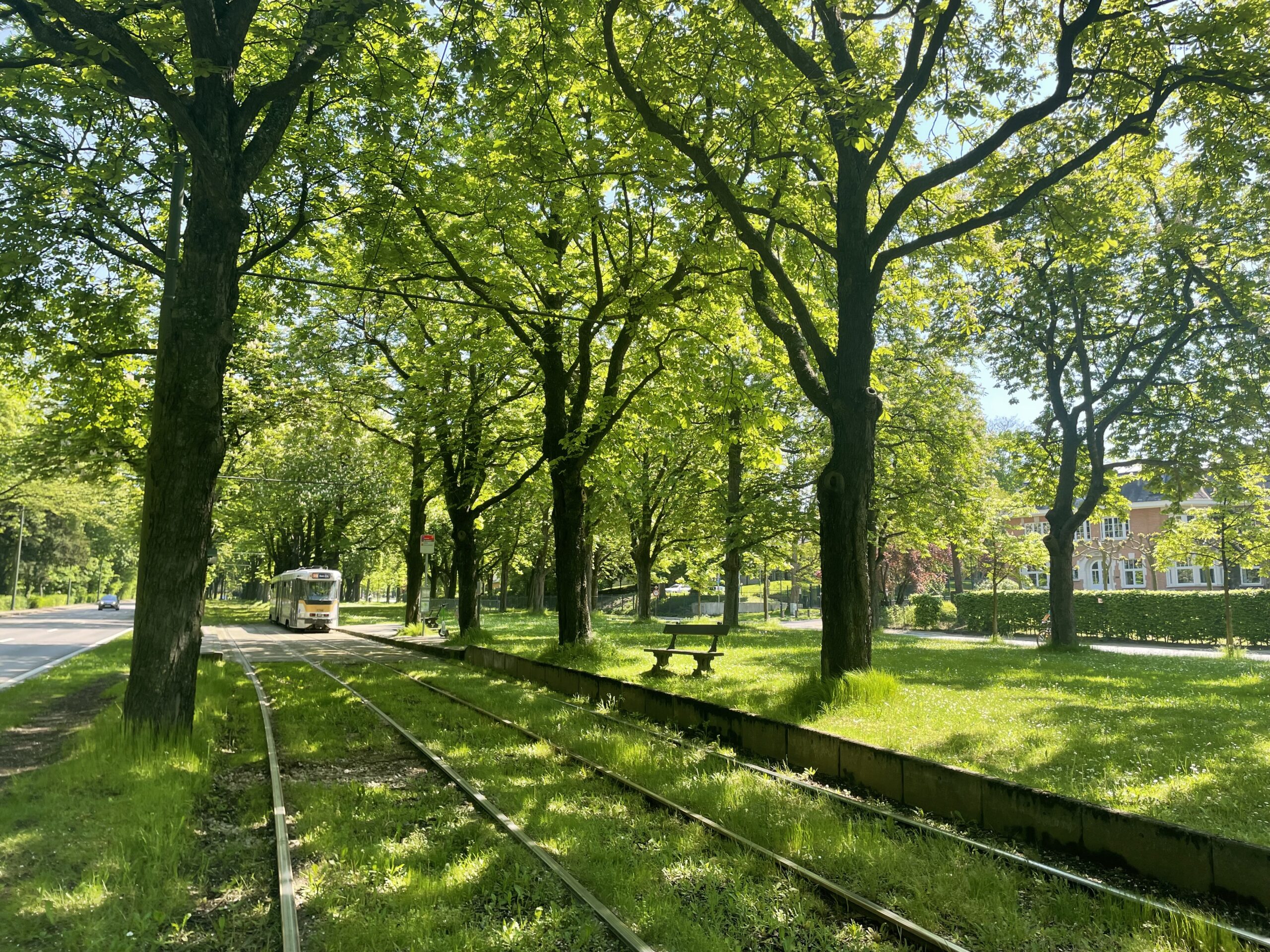
Tram passing through a green Woluwe Saint-Pierre. Credit: The Brussels Times
Of the 19 communes in Brussels, presiding over the leafy, well-to-do suburb is probably not the worst gig.
Stately homes rub shoulders with even statelier embassy buildings, streets are manicured to the point that some trees are trimmed into cube shapes, and the entire area is bordered by the sprawling and picturesque Woluwe Park.
“One third of Woluwe-Saint-Pierre is green space, with Woluwe Park and the Sonian Forest, so it's a really important feature of this municipality,” says Cerexhe. “I'm a bit chauvinistic, but I always say that Woluwe-Saint-Pierre is the most beautiful commune in Brussels,” he grins.
It’s also one of the most expensive. Homes in Woluwe-Saint-Pierre are pricier than anywhere else in Brussels, currently selling for an average of €655,500. It’s also the most expensive commune for renters, with the average rent rising to €1,413 per month for an apartment in 2023.
Suburban paradise
One of the biggest challenges in managing the commune, says Cerexhe, is maintaining the air of suburban paradise that its well-off residents expect.
“The primary challenge is to maintain and develop this green, airy, residential character. If we want the Belgian upper middle class and international population to stay here, we have to offer them a high quality of life,” he says.
If re-elected for a third term this October, his priorities include keeping population density down, appearances immaculate, infrastructure well maintained, and ensuring safety, all without imposing too many local taxes on residents.
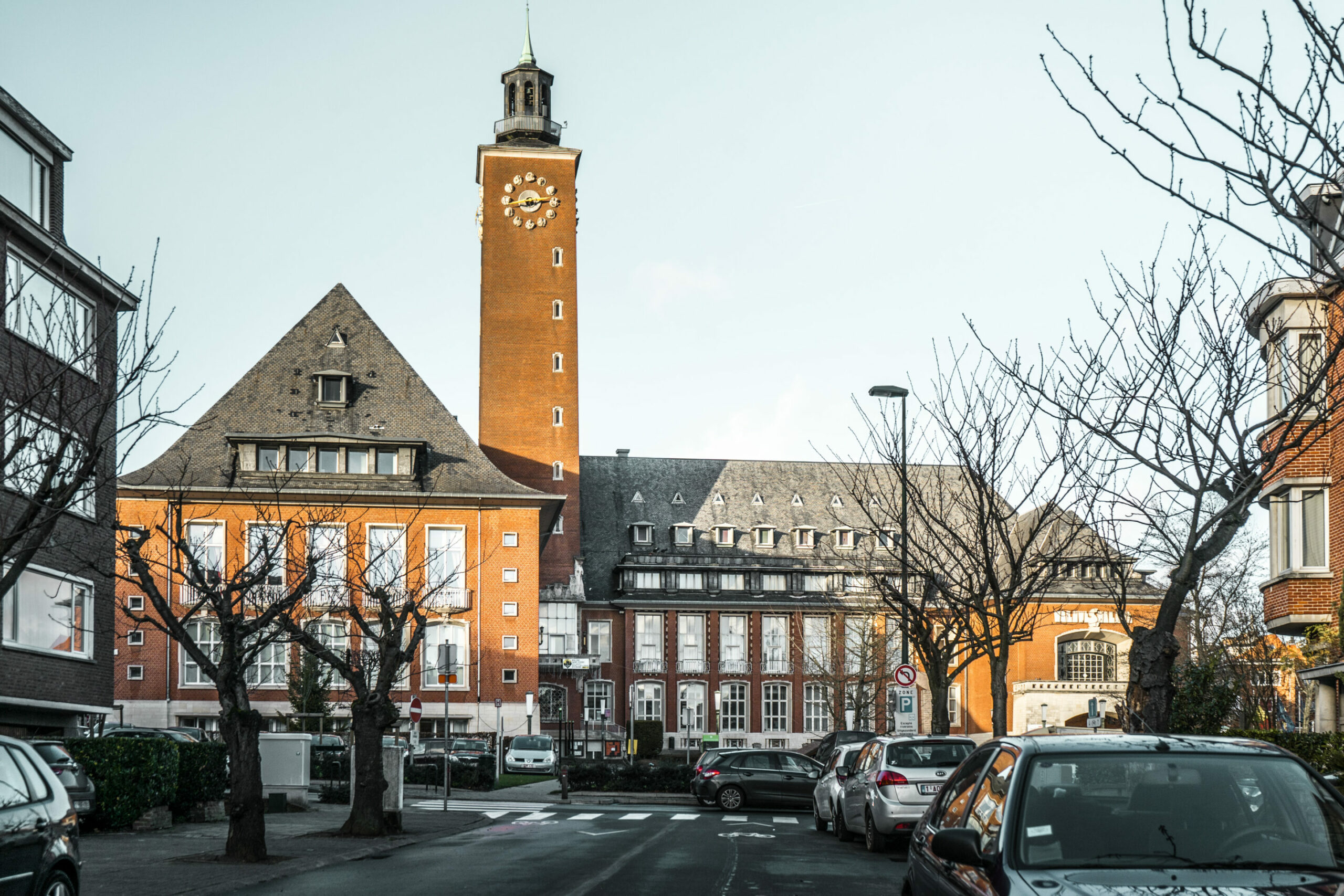
Woluwe Saint-Pierre municipality and town hall. Credit: The Brussels Times
“It's a tough job. But we have succeeded in the 12 years I've been mayor,” he says. The largely residential area is home to many wealthy Eurocrats working in the nearby institutions. Cerexhe notes that about 40% of locals are not Belgian, and one of his priorities as mayor has been fostering a sense of community in the area.
“If I were to die tomorrow, I think I would have been the mayor who transformed this commune from a dormitory where people sleep into a commune where people bonded and where people know each other,” he says.
Cerexhe says this has been achieved by planning local events and festivals, as well as investing in public spaces. He mentions the recent redevelopment of Place Dumon, and his plans to do the same for Place des Maïeurs if re-elected.
Integrating newcomers
Integration into the community is also essential for those who have arrived in Woluwe-Saint-Pierre seeking asylum or temporary protection. Cerexhe says the commune has welcomed around 400 Ukrainians since Russia invaded in 2022, as well as being home to a reception centre for unaccompanied foreign minors.
Recently, 80 people who had been squatting in a vacant care home in Ixelles were relocated to another empty building near Square Montgomery in Woluwe-Saint-Pierre, to make way for an asylum seeker reception centre.
Cerexhe says there is still “a lot of work to be done” to help integrate people living in these places into the local community.
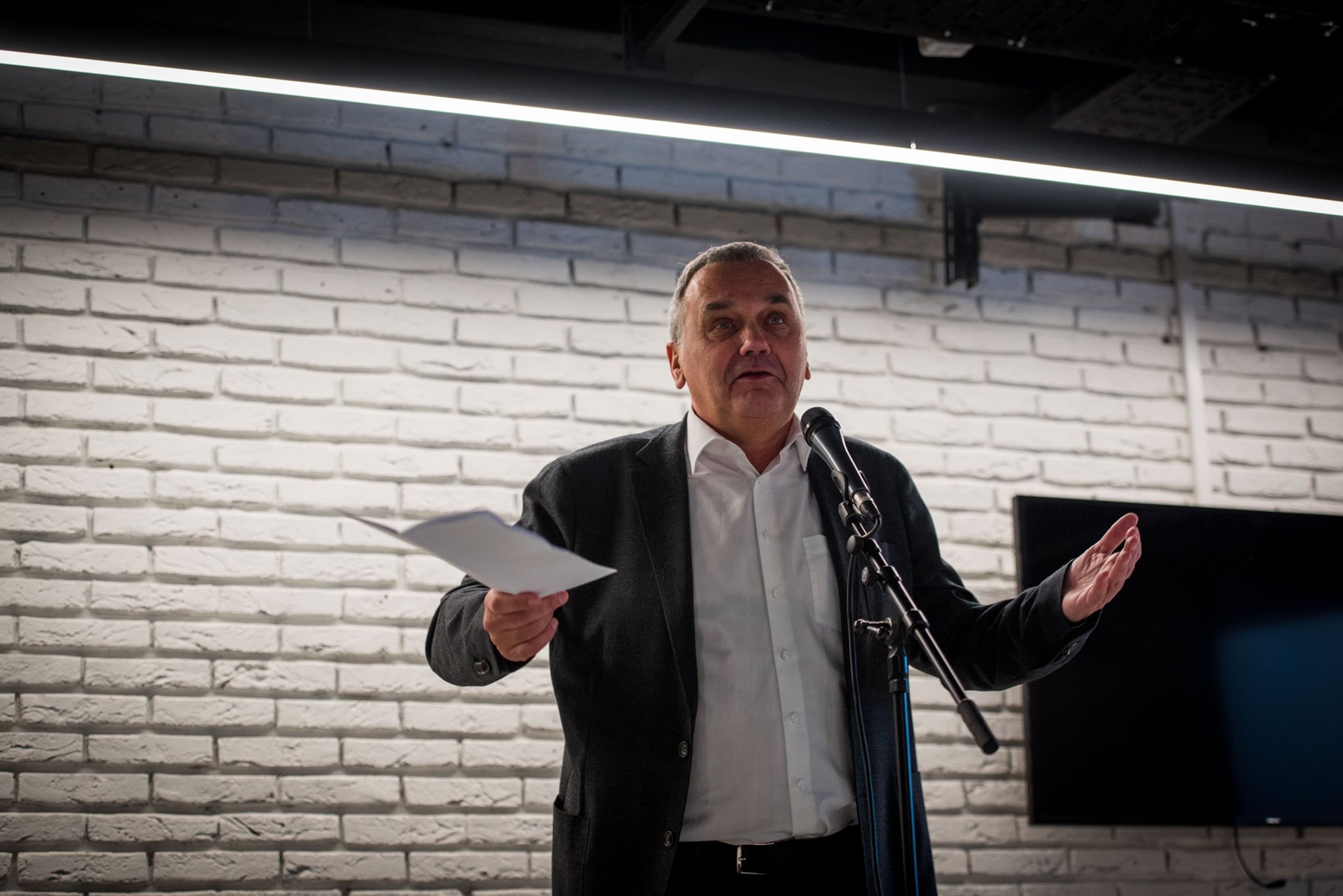
Mayor of Woluwe Saint-Pierre, Benoit Cerexhe. Credit: Belga
“I've spent hundreds of hours with the asylum authorities and local residents trying to ensure that things go well. The integration of these places into a neighbourhood, it’s scary at first. People are afraid, so they withdraw into themselves – there's a huge amount of educational work to be done,” he says.
“I can tell you that not everyone is happy. But on the whole, it's going very well,” he adds.
A huge focus for any local authority is mobility policy, and Woluwe-Saint-Pierre is no exception.
Cerexhe believes a balance has to be struck between encouraging sustainable means of transport on one hand, while on the other hand not “penalising” car owners.
“We really need to keep these neighbourhoods calm and keep traffic off the main roads, and we also need to develop alternative forms of transport like cycling, walking and public transport – we have good transport links, but there's still room for improvement,” he says.
“But there are some people who, for professional, family or other reasons, need a car to get around. We must not penalise them, and we must find a point of balance so that all modes of transport can evolve in the city,” he adds.
Cerexhe is subtly indicating a shift away from greener policies and towards the right, as he campaigns as part of a ticket with centre-right MR/Open VLD for the October municipal elections.
If they win a majority, Les Engagés would jettison their current coalition partners, Ecolo and DéFI.
“I feel very strongly that this is what the population wants and that it corresponds to the sociology of Woluwe-Saint-Pierre,” says Cerexhe, who adds that working with Ecolo became “difficult” because they wanted to “impose their viewpoint of punitive ecology”.
He cites examples such as the proposed redevelopment of Avenue de Tervuren to include new cycle lanes, which he says would result in the loss of around 100 parking spaces.
In terms of environmentally friendly policies, Cerexhe wants to focus on advising and supporting citizens, rather than “imposing” initiatives on them.
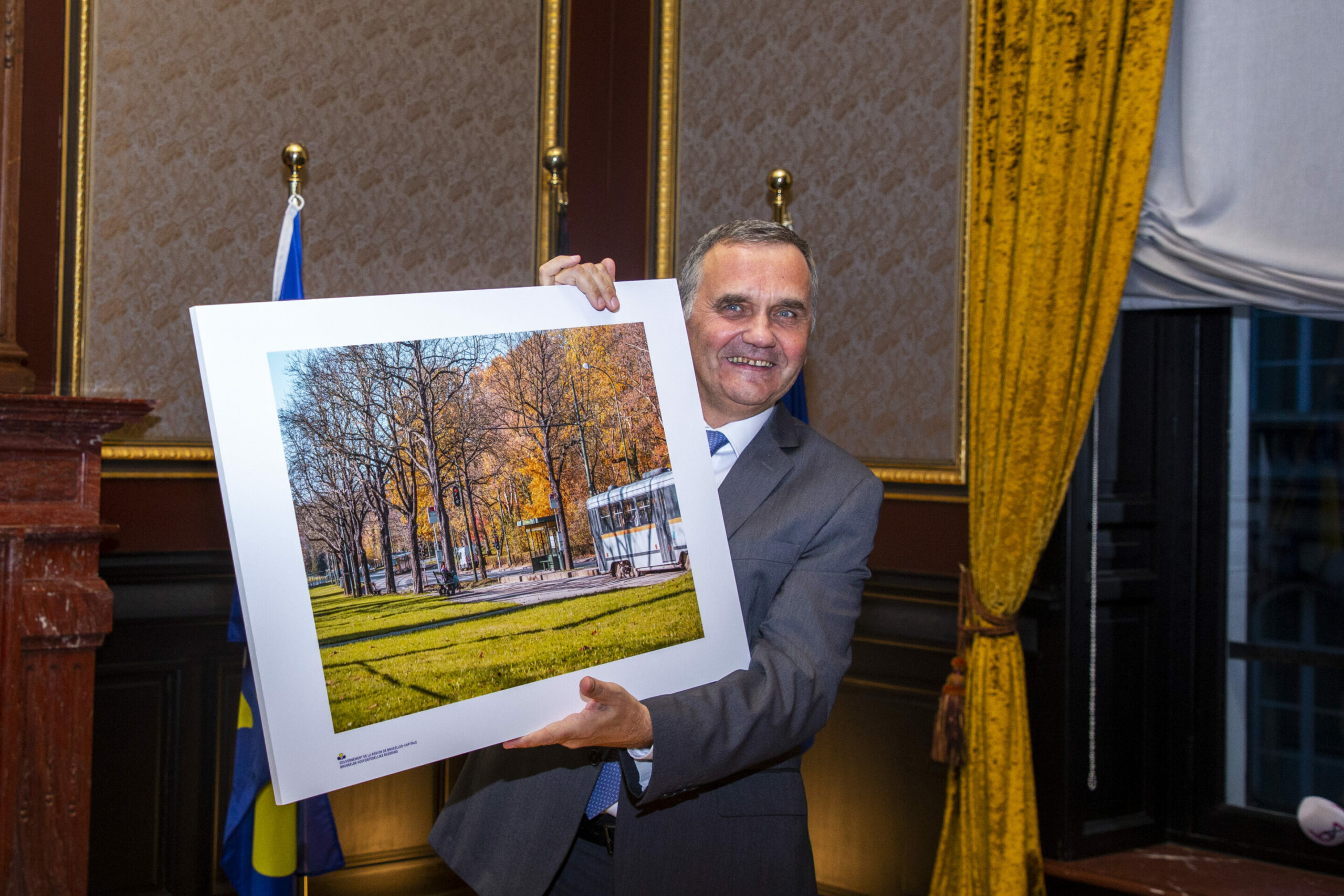
Mayor of Woluwe-Saint-Pierre Benoit Cerexhe pictured during an oath taking ceremony for the future mayors of several Brussels region cities, Thursday 29 November 2018. Credit: Belga / Hatim Kaghat
“What I'd really like to do is have a service here at the commune that serves the population. So, for people who want to insulate their homes or improve their energy supply, they have a service here to advise and support them,” he says.
Above all else, Cerexhe says he wants a third round as mayor to help improve the everyday lives of Woluwe-Saint-Pierre residents.
“You can do beautiful things,” he says. “They're small things, but they are drops of water that improve people’s daily lives. Whether it’s redesigning a street, or planting in the community, it’s what people see when they leave home in the morning or come home in the evening. And I think it’s important to provide all that.”

